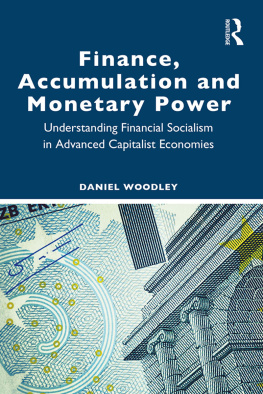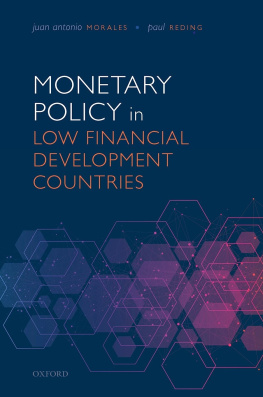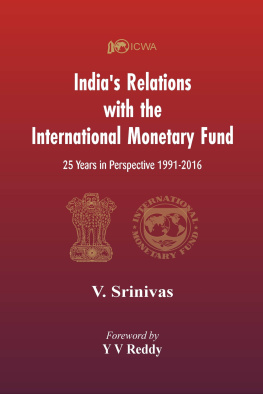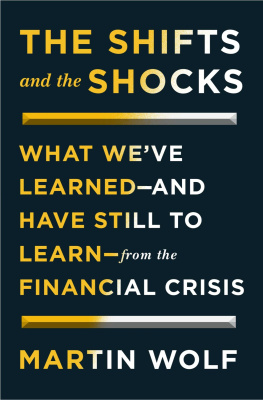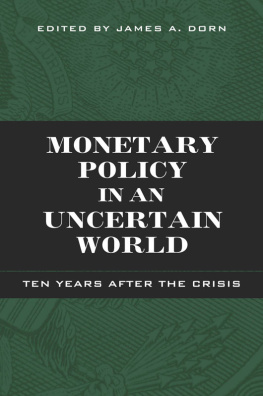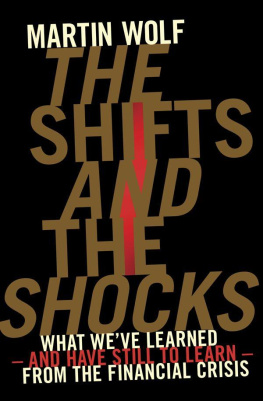Contents
Page List
Guide

FINANCE, ACCUMULATION AND MONETARY POWER
This accessible yet rigorous book examines the development of financial socialism in advanced capitalist economies in the decade since the global financial crisis of 20072009. This new term refers to an attempt to resolve the accumulation crisis of capital through coordinated central bank activism, where state circuits of monetary capital assume a critical role in the reproduction of capitalist social relations.
The book explains the dynamics of the crisis as it has developed and assesses the response of monetary elites to systemic financial risk in the global economy. Their failure to re-engineer growth following the technology boom of the late 1990s and the global financial crisis are driving fundamental changes in the form and function of capitalist money, which have yet to be theorized adequately.
Finance, Accumulation and Monetary Power presents a revealing and radical critique of the failure of the International Political Economy to apprehend changes taking place within capitalism, employing a critical-theoretical analysis of contradictions in the capitalist reproduction scheme. The book will be of key interest to scholars, students and readers of international political economy, critical political economy, heterodox economics, globalization, international relations, international political sociology, business studies and finance.
Daniel Woodley teaches politics at DLD College in London, UK, and is the author of numerous books and articles on political theory and international politics, including Fascism and Political Theory (2010) and Globalization and Capitalist Geopolitics (2015).
In Finance, Accumulation and Monetary Power, Daniel Woodley expertly depicts and uncovers the key structural problems that contemporary postliberal capitalism faces. As the book shows, we are moving towards what Woodley terms financial socialism, in which nation-states and international organisations are required to stabilise an increasingly unstable global capitalism, using monetary policy to prop up the value of money and assets and in doing so, to sow the seeds of the next crisis. The book is a must-read for anyone with an interest in the ongoing stagnation of the global economy, and the likely sources of the current crisis to come. At the end of a ten-year period of quantitative easing and ultraloose monetary policy we still exist in a period of secular stagnation this book goes beyond the surface-level explanations of both mainstream and heterodox economics, to show why this is the case.
David J. Bailey, University of Birmingham, UK
FINANCE, ACCUMULATION AND MONETARY POWER
Understanding Financial Socialism in Advanced Capitalist Economies
Daniel Woodley
First published 2020
by Routledge
2 Park Square, Milton Park, Abingdon, Oxon OX14 4RN
and by Routledge
52 Vanderbilt Avenue, New York, NY 10017
Routledge is an imprint of the Taylor & Francis Group, an informa business
2020 Daniel Woodley
The right of Daniel Woodley to be identified as author of this work has been asserted by him in accordance with sections 77 and 78 of the Copyright, Designs and Patents Act 1988.
All rights reserved. No part of this book may be reprinted or reproduced or utilised in any form or by any electronic, mechanical, or other means, now known or hereafter invented, including photocopying and recording, or in any information storage or retrieval system, without permission in writing from the publishers.
Trademark notice: Product or corporate names may be trademarks or registered trademarks, and are used only for identification and explanation without intent to infringe.
Library of Congress Cataloging-in-Publication Data
Names: Woodley, Daniel, author.
Title: Finance, accumulation, and monetary power : understanding financial socialism in advanced capitalist economies / Daniel Woodley.
Description: New York : Routledge, 2019. | Includes bibliographical references and index.
Identifiers: LCCN 2019028253 (print) | LCCN 2019028254 (ebook) | ISBN 9780367338558 (hardback) | ISBN 9780367338527 (paperback) | ISBN 9780429322419 (ebook)
Subjects: LCSH: Finance. | Finance--Social aspects. | Socialism.
Classification: LCC HG101 .W66 2019 (print) | LCC HG101 (ebook) | DDC 332.01--dc23
LC record available at https://lccn.loc.gov/2019028253
LC ebook record available at https://lccn.loc.gov/2019028254
ISBN: 978-0-367-33855-8 (hbk)
ISBN: 978-0-367-33852-7 (pbk)
ISBN: 978-0-429-32241-9 (ebk)
Typeset in Bembo
by Lumina Datamatics Limited
In memory of Rosaline Mary Bernadette Woodley 19422017
CONTENTS
PART I
Theorizing the crisis
PART II
Financial socialism
The following study examines the trend towards financial socialism in advanced economies, developing themes raised in two previous works, Fascism and Political Theory (2010) and Globalization and Capitalist Geopolitics (2015). The study draws on an extensive range of academic, official and journalistic sources to demonstrate how accumulation and monetary power are interlinked in the present economic crisis, and how political and monetary elites have utilized this crisis to extend their power of disposal over the surplus product of the global economy. Although the title suggests an analysis of collectivist trends in postliberal capitalism, the corporate-synthetic character of financial socialism should be understood less as an antechamber on the road towards universal political emancipation than a compulsive, unstable and authoritarian form of capitalist monetary power that concentrates capital and magnifies inequality for the exclusive benefit of investor elites. The oligarchic structures of legal and political organization that sustain socialism for the investor class constitute a form of socioeconomic change within capitalism, presaging a further aggregation of power within a multifaceted corporate governing class whose apparatus of direct and indirect social control lies beyond the grasp of the average citizen (Suarez-Villa 2015: 296). This is consistent with the disintegration of universal ideologies of progress in advanced economies in which first state socialism then liberalism have been exposed as failed legitimation strategies to contain the working class and suppress the global South (Wallerstein 1992). On the one hand, financial socialism indicates a specific moment in capitalist development where state circuits of capital assume a critical role in the reproduction of oligarchy. On the other hand, financial socialism facilitates the deferral of a catastrophic unwinding of fictitious capital in the global financial system, enabling capital accumulation without a corresponding augmentation of value through the profitable valorization of socially necessary labour. This deferral is manifest in the determination of global monetary and political elites to sustain the illusion of liquidity and rising asset prices and to institutionalize new macroprudential regulations to mitigate global systemic risk and delay an alteration of capitalist relations of power through the continual multiplication of debt as a condition for the accumulation of capital without value.

